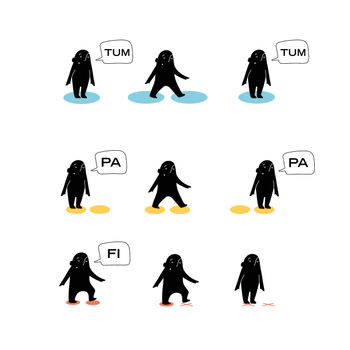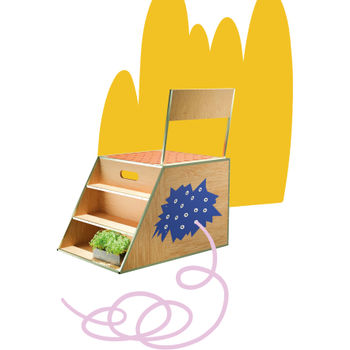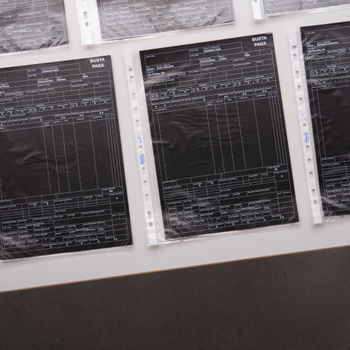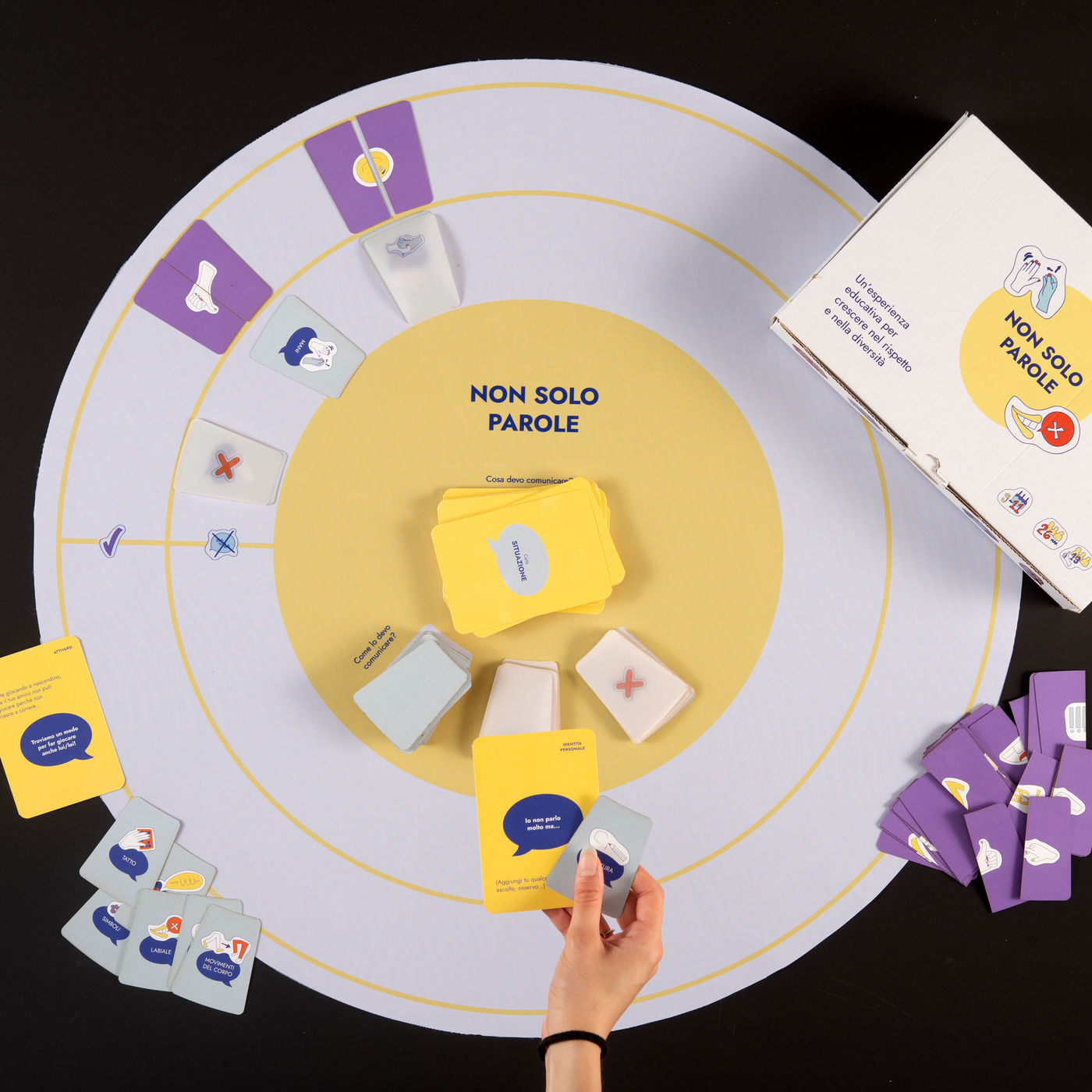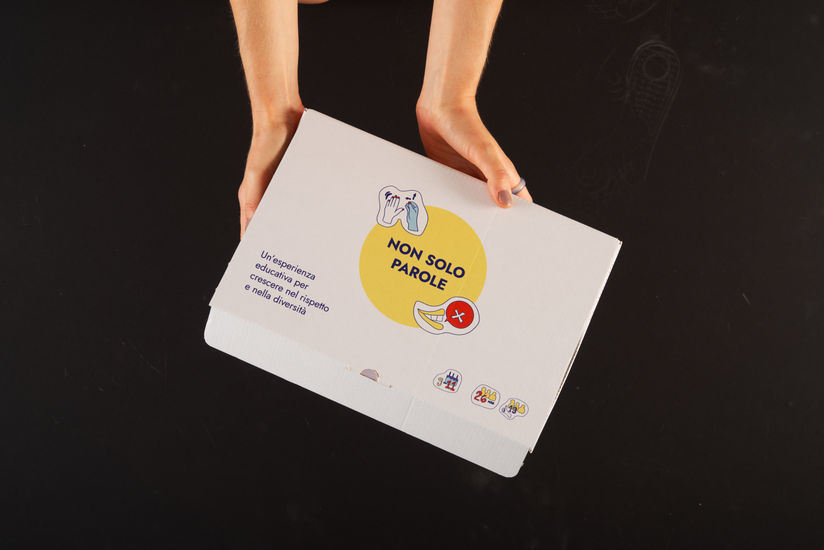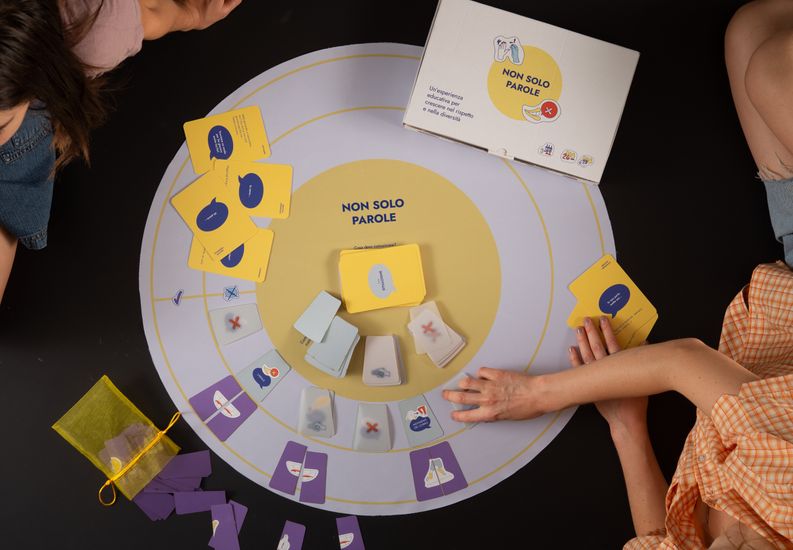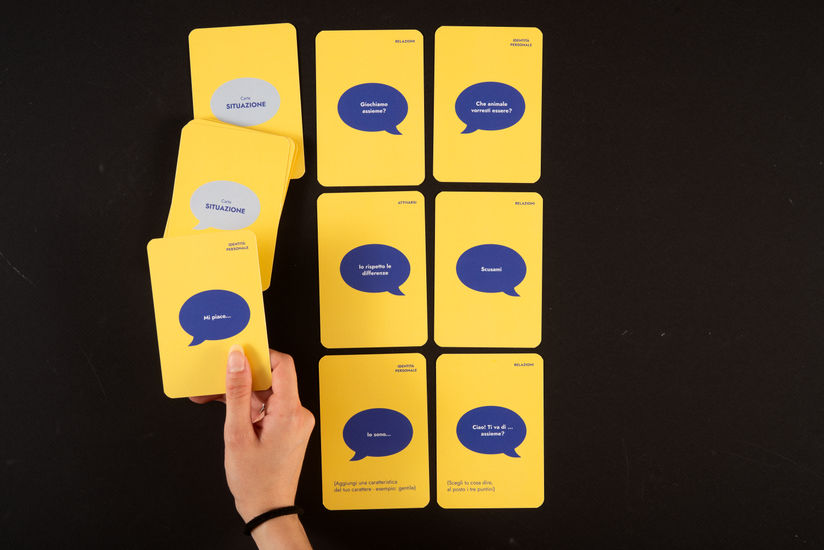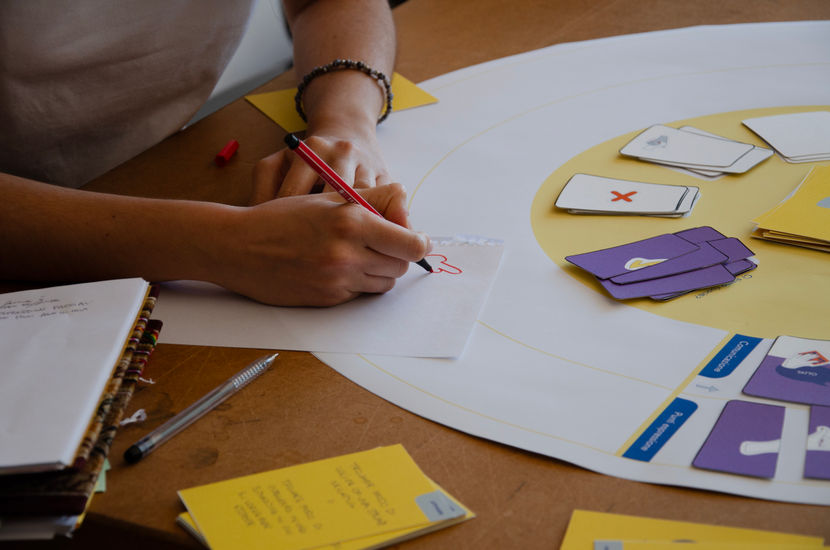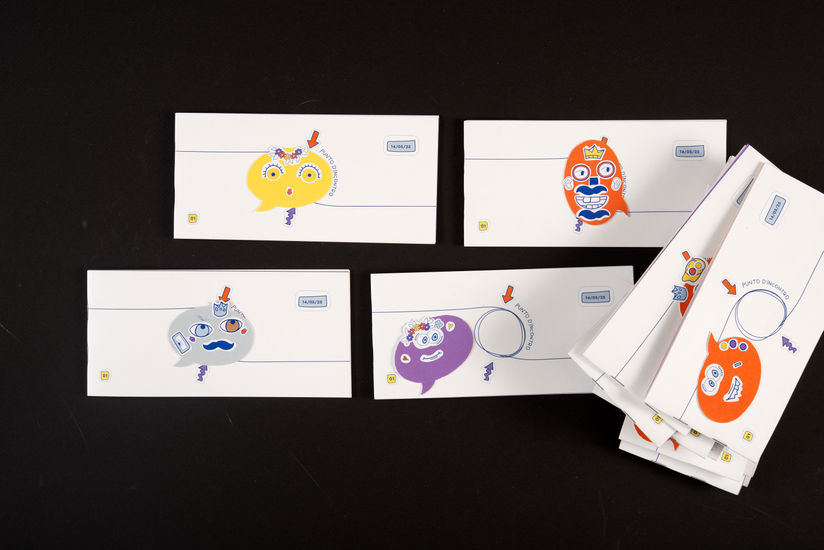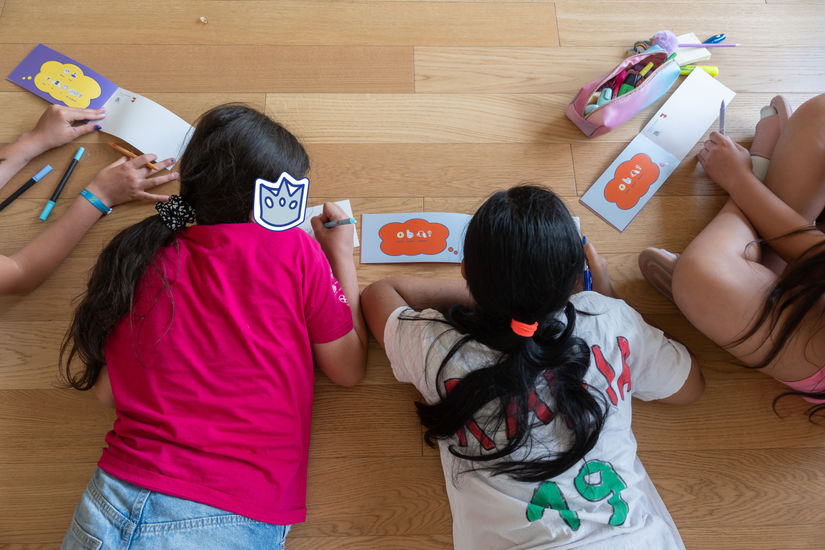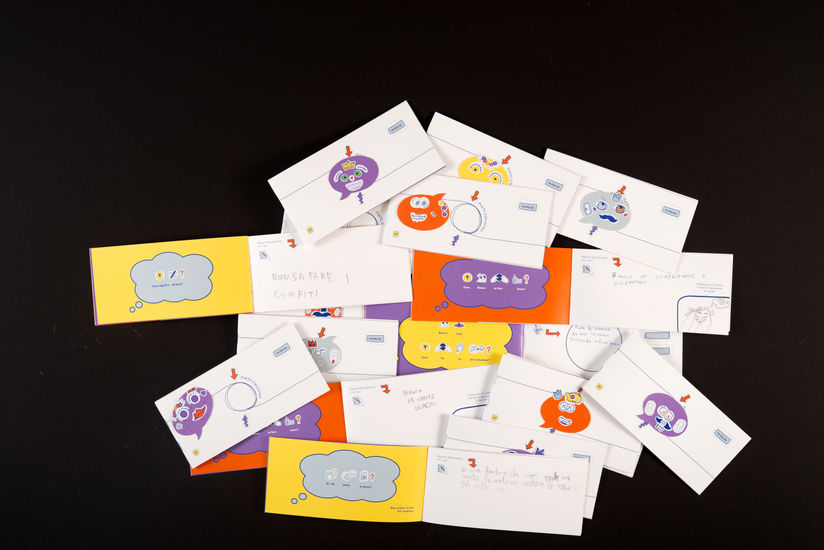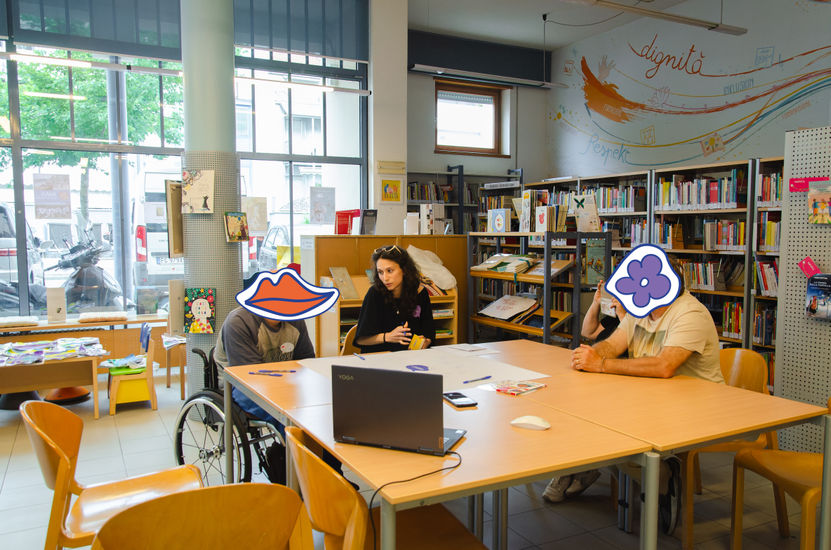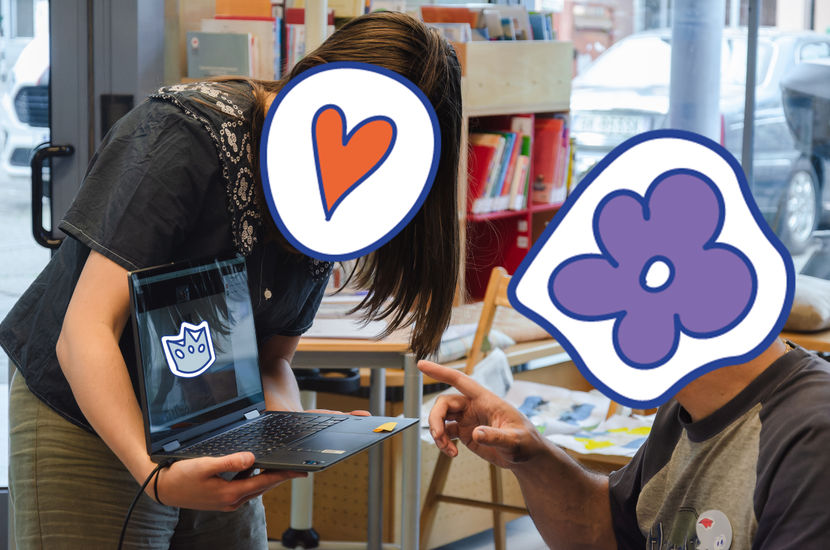Punto d'Incontro - Transforming Disability Perception through Learning and Playing
Giorgia Baccichetti
Considering the current situation concerning disability and the relationship with society, as well as
existing prejudices and discriminatory behaviour, this work proposes a thesis project that aims to understand how to address exclusionary attitudes towards people with disability in daily life. The aim is to challenge dominant discriminatory attitudes, change perceptions and approaches to disability, and promote a culture of inclusion. In particular, the project aims to fill a gap (theoretically non existent but concretely very present) in the school debate on disability by trying to reduce the distance between children and disability. It focuses on children between the ages of 9 and 11, those who will be the next generation, acting at an age when they are not yet fully exposed to prejudices and social pressures. The development of awareness of the diversity inherent in the human being, as well as the knowledge of multi-channel communication, as well as the value of attentive listening and mutual understanding, and the promotion of empathy and action against prejudice, are key elements in fostering a more authentic and inclusive relationship towards disability. These are crucial skills in all areas of daily life and human relationships. After a thorough analysis of the various topics in the field, the research is concretized in an educational tool that, thanks to the power of the game, becomes a practical support for teachers and educators in dealing with subjects often considered “uncomfortable”. Through an educational path, the game aims to convey to children important values related to inclusion and valorisation of differences, focusing on diversity of communication demonstrating how attentive listening is the basis of everything. A spark: it doesn’t solve everything, but it opens the possibility of addressing disability in class in an engaging and active way. A small tool that promotes a more positive perception of disability.
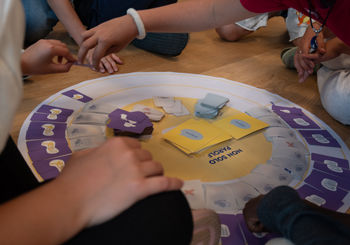
Non solo Parole is a didactic tool—a spark to start a journey into differences and disability. A way to lay the foundations, from early childhood, for a more inclusive, genuine, and attentive society.
Master in Eco Social Design Laurea / Abschluss 25.2

